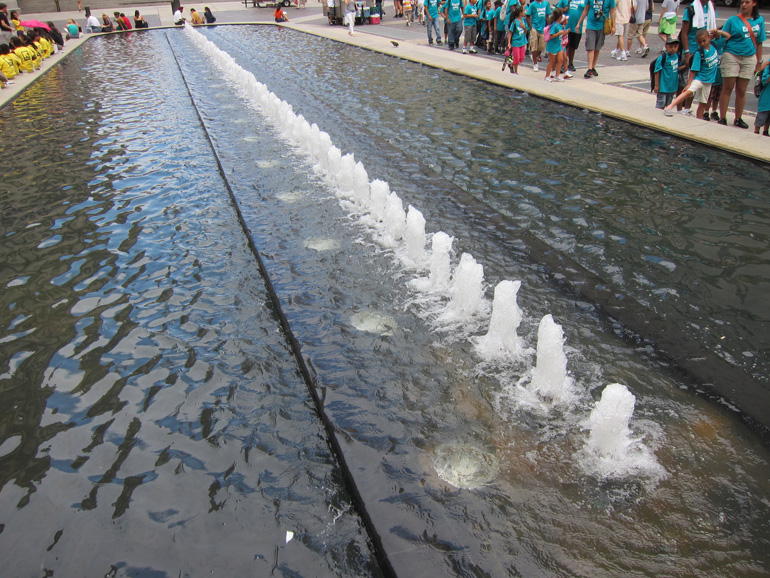Friday Commonplace:
Ma Donna
3 August 2012
All excerpts today come from The Anonymous Venetian, by Donna Leon.
Once he had discovered them, women had conquered Brunetti, and he could never understand the sexual appeal of any — well, there was really only one — other sex.
***
Francesco Crespo lived only four blocks from Feltrinelli, but it might as well have been a world away. The building was sleek, a tall glass-fronted rectangle which must have seemed, when it was built ten years ago, right on the cutting edge of urban design. But Italy is a country where new ideas in design are never prized for much longer than it takes to put them into effect, by which time the ever-forward-looking have abandoned them and gone off in pursuit of gaudy new banners, like those damned souls in the vestibule of Dante’s Inferno, who circle round for all eternity, seeking a banner they can neither identify nor name.
***
Ten minutes later, he walked out from the sottoportico of the Calle della Bissa and into Campo San Bartolomeo. His eyes went up to the bronze statue of Goldoni, perhaps not his favourite playwright, but certainly the one who could make him laugh the hardest, especially when the plays were presented in their original Veneziano dialect, as they always were here, in the city that swarmed to his plays and loved him enough to put up this statue. Goldoni was in flull stride, which made this campo the perfect place for him to be, for here, everyone rushed, always on their way somewhere: across the Rialto Bridge to go to the vegetable market; from Rialto to either the San Marco or the Cannaregio district. If people lived anywhere near the heart of the city, its geography would pull them through San Bartolomeo at least once a day.
***
“He’s a cretin, hopeless,” Lotto said, voice heavy, as though he had daily reminder of that fact.
“Then what’s he doing working for you? You still do have the reputation of being the best newspaper in the country.” Brunetti’s phrasing of this was masterful; his personal scepticism was evident, but it didn’t flaunt itself.
“He’s married to the daughter of that man who owns that furniture store, the one who puts in the double page ad every week. We had no choice. He used to be on the sports page, but then one day he mentioned how surprised he was to learn that American football was different from soccer. So I got him.” Lotto paused and both men reflected for a moment. Brunetti found himself strangely comforted to know that he was not the only man to be burdened with the likes of Riverre and Alvise. Lotto apparently found no comfort and said only, “I’m trying to get him transferred to the political desk.”
“Perfect choice, Guido. Good luck,” Brunetti said, thanked him for the information, and hung up.***
Before he started on them, he went back inside and picked up his copy of Tacitus’ Annals of Imperial Rome. Brunetti picked up where he had left off, with the account of the myriad horrors of the reign of Tiberius, an emperor for whom Tacitus seemed to have an especial distaste. These Romans murdered, betrayed, and did violence to honour and to one another. Ho like us there were, Brunetti reflected. He read on, learning nothing to change that conclusion, until the mosquitoes began to attack him, driving him inside. On the sofa, until well after midnight, he read on, not at all troubled by the knowledge that this catalogue of crimes and villanies committed almost two thousand years ago served to remove his mind from those that were being committed around him. His sleep was deep and dreamless, and he awoke refreshed, as if he believed that Tacitus’ fierce, uncompromising morality would somehow help him through the day.

